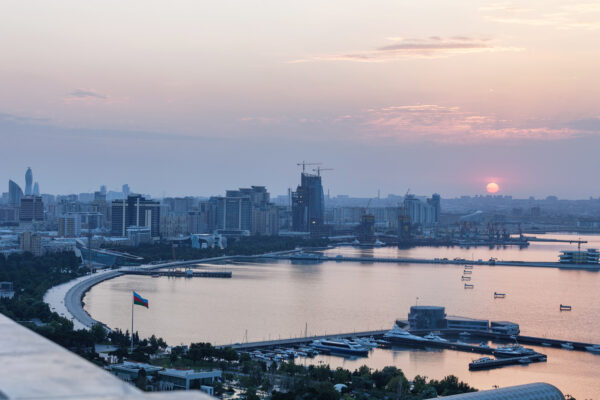
The European Union seeks to form strategic partnership with natural gas producers around the Caspian Sea to lessen its dependence on Russian imports, an energy proposal released on Wednesday showed.
The Financial Times reports that the European Commission is stepping up a “charm offensive” in Azerbaijan and Turkmenistan “in a drive to put the gas-rich but politically sensitive countries at the heart of the bloc’s energy strategy.”
Maroš Šefčovič, the European energy union commissioner, told the newspaper, “I think that Europe has really got tired of each summer having a discussion of how to make it through the next winter. The world’s biggest economy should not have such concerns in the twenty-first century,” he said.
The Slovak diplomat has prioritized the Southern Gas Corridor pipelines that ran from the Caspian Sea region through Turkey into Europe. The final section of this network, the Trans Adriatic Pipeline, will cross the north of Greece and Albania to terminate in Italy and provide Europe with up to ten billion cubic meters of Azerbaijani gas by 2020.
The Southern Gas Corridor was designed to compete with Russia’s planned South Stream pipeline which would have delivered gas from the south of Russia across the Black Sea and the Balkans into Austria.
Russia canceled the $40 billion project late last year, citing European opposition. The European Commission had leaned on Bulgaria to pull out of the pipeline and was investigating whether South Stream didn’t violate the bloc’s competition rules.
The cancelation also came at a time of worsening East-West relations. The European Union had imposed economic and financial sanctions on Russia following its occupation and annexation of the Crimean Peninsula from Ukraine.
South Stream was primarily a political project. It is believed Russia uses just 60 percent of its pipeline capacity. The country wanted to build South Stream because it would have allowed it to bypass Ukraine which transits roughly half of the natural gas Russia sells to Europe.
The countries in the European Union get just over a quarter of their gas from Russia but many of the new member states in Russia’s periphery are almost wholly dependent on it.
Russia wants to maintain that dependence which gives it leverage over European policy.
In an effort to prevent Europe from diversifying its energy supply, Russia tried to block the construction of the Baku-Tbilisi-Ceyhan pipeline which became operational in 2006 and can transport up to fifty million tons of crude oil from the Caspian to Turkey every year.
In 2009, a senior Azerbaijani official told American diplomats that Russia was trying to take advantage of poor Azerbaijani-Turkish relations “to kill the prospects for transit of Azerbaijani and Turkmen gas to international markets.”
The two countries nevertheless agreed to build a pipeline two years later that is due to carry up to ten billion cubic meters of Azerbaijani gas to European markets starting in 2017.
Azerbaijan’s substantial gas reserves are critical to the Southern Gas Corridor. A consortium that includes BP, Norway’s Statoil and Italy’s Eni is developing one trillion cubic meters of gas reserves off Azerbaijan’s Caspian Sea coast.
According to the Financial Times, Šefčovič has also embarked on “a courtship of Turkmenistan,” situated across the Caspian Sea from Azerbaijan. It is estimated to have the world’s fourth-biggest gas reserves. Gazprom, Russia’s gas monopoly, did him a favor when it unexpectedly slashed its imports from Turkmenistan earlier this month, prompting the state oil institute in Ashgabat to call its former Soviet master an “unreliable partner.”
